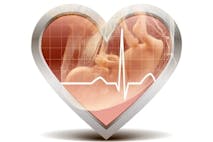
New Archbishop of Canterbury warns of danger in legalizing assisted suicide
Nancy Flanders
·
Child of rape: “you can’t let your circumstances define your life”
Every two minutes, a sexual assault claims another victim in America. Additionally, 17.7 million American women have been victims of attempted or completed rape. According to statistics, victims of sexual assault are 3 times more likely to suffer from depression, 4 times more likely to contemplate suicide, 13 times more likely to abuse alcohol, and 26 times more likely to abuse drugs.
In 2012 alone, an astonishing 346,830 women were raped, with a roughly estimated 17,342 pregnancies resulting from those encounters In conjunction, less than 1% of abortions are performed because of a pregnancy that results from rape or incest.
Abortion advocates continually highlight this percentage in an effort to demonstrate the supposed necessity for abortion. However, most abortion providers aren’t concerned with women wanting an abortion based on rape or incest. Rather, this particular reason is abused as a smokescreen to advance the abortion industry’s agenda.
Taking all of these statistics into account could easily persuade a woman who has suffered the tragedy of rape to abort her child should she become pregnant from the encounter. This is usually done in an attempt to cut off all ties to the painful incident. But is abortion really the answer in this rare yet horrific instance?
The issue of pregnancy as a result of rape received recent attention from an unlikely source with the 2014 Miss USA Pageant. Valerie Gatto, Miss Pennsylvania, opened up about her life story during the pageant, revealing that she was a product of rape. At a very young age, Gatto’s mother told her, “[S]omething bad happened to me. A very bad man hurt me, but God gave me you.” Gatto’s mother was just nineteen years old when a man attacked her on a busy street, pulled her behind a building, and raped her at knifepoint. Her attacker planned to murder her once he had raped her. The lights of a passing car became her saving grace when they startled the man, allowing her to escape.
Gatto’s mother became pregnant from the event. She hid the pregnancy for some time before expressing every intention to give the baby up for adoption. With the wise counsel and support of her grandmother, who told her, “God doesn’t give you more than you can handle,” Gatto’s mother gave birth and decided to keep her daughter.
Gatto went on to say that her family never viewed her mother’s situation as something negative. Instead, Gatto used the tragic events that led to her conception as a platform to be an advocate for sexual assault awareness and to teach women of all ages the importance of protecting themselves against violence.
The decision to keep Gatto helped her mother cope with the painful effects of her rape. Gatto “is always grateful that her mother lived through it, thanks to the bright light from the passing car, which she sees as a meaningful symbol.” Gatto’s story is a true testimony of tragedy to triumph and a demonstration that all life is created with purpose even in the darkest circumstances.
Gatto sums up her positive outlook regarding her situation by declaring, “I believe God put me for a reason … [t]o inspire people, to encourage them, to give them hope that everything is possible and you can’t let your circumstances define your life.”
Live Action News is pro-life news and commentary from a pro-life perspective.
Contact editor@liveaction.org for questions, corrections, or if you are seeking permission to reprint any Live Action News content.
Guest Articles: To submit a guest article to Live Action News, email editor@liveaction.org with an attached Word document of 800-1000 words. Please also attach any photos relevant to your submission if applicable. If your submission is accepted for publication, you will be notified within three weeks. Guest articles are not compensated (see our Open License Agreement). Thank you for your interest in Live Action News!

Nancy Flanders
·
Activism
Cassy Cooke
·
Politics
Bridget Sielicki
·
Issues
Nancy Flanders
·
Issues
Bridget Sielicki
·
Issues
Angeline Tan
·
Issues
Erin Aitcheson
·
Politics
Erin Aitcheson
·
Opinion
Erin Aitcheson
·
Human Rights
Erin Aitcheson
·
Human Rights
Erin Aitcheson
·